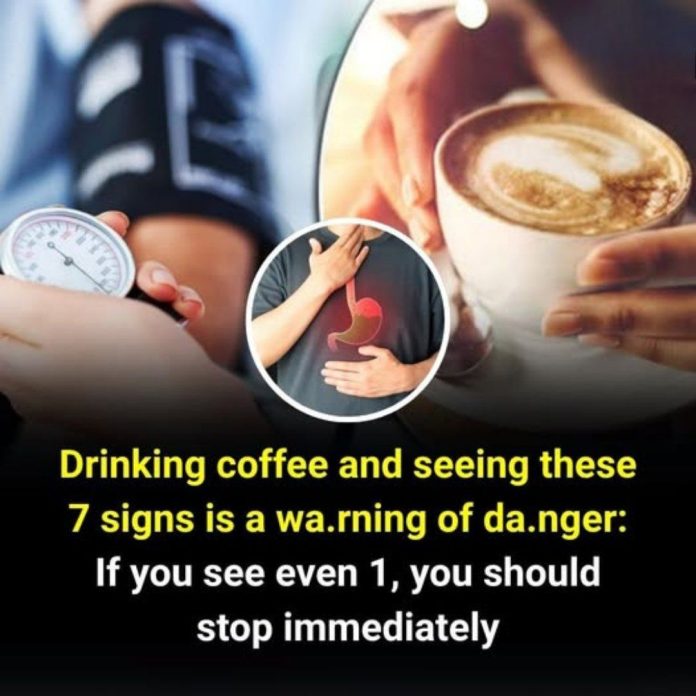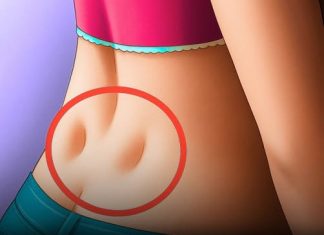Do you have these symptoms when you drink coffee? We should stop now! For many people, coffee is more than just a morning ritual—it’s a lifeline that powers the day. But too much caffeine can take a serious toll on your body and mind. While moderate consumption can be fine for many, there are warning signals your system may be sending that indicate it’s time to stop or at least drastically cut back. Below are seven red-flags that show coffee is doing more harm than good in your life.
1. Persistent Jitters, Restlessness, and Nervousness
One of the most obvious signs of caffeine overload is feeling jittery or restless. Your hands may shake, your heart may race, and you might have trouble keeping still. Over time, even small doses of coffee can provoke anxiety or a constant sense of nervous energy. If coffee turns you into someone who can’t relax—even in calm situations—it’s time to reevaluate your habit.

2. Elevated Heart Rate or Palpitations
Caffeine is a stimulant, and in sensitive individuals, it can push the heart into overdrive. Rapid or irregular heartbeats—palpitations—can be alarming. You may feel a fluttering chest or an unmistakable pounding. If these episodes happen regularly and are triggered by coffee consumption, your body is trying to tell you it’s under strain.
3. Sleep Trouble and Insomnia
Another red flag is when your nightly rest suffers. Even if you drink coffee early in the day, it may linger in your system, interfering with your ability to fall asleep or stay asleep. Insomnia, restless tossing, or waking too early are signs that caffeine is disrupting your circadian rhythm. If you’re struggling to wind down at night, cutting coffee may restore balance.
4. Digestive Issues, Acid Reflux or Stomach Discomfort
Coffee is acidic and can irritate the gastrointestinal lining or prompt excess acid production. If you experience frequent stomach aches, acid reflux, heartburn, or bloating after your cups, the brew may be too harsh for your digestive system. Persistent digestive complaints should be taken seriously, especially if they correlate with coffee intake.
5. Frequent Urination or Excess Thirst
Caffeine has diuretic effects, meaning it causes you to urinate more often. If you find yourself constantly running to the bathroom, or feeling unusually thirsty, this might be a signal that your kidneys are under stress or your fluid balance is off. In excess, these effects can cause dehydration or electrolyte imbalance over time.
6. Unexplained Headaches or Migraine Triggering
Paradoxically, while many use coffee to ease headaches, excessive consumption (or sudden withdrawal) can actually provoke them. If you regularly experience headaches, migraines, or head pressure, particularly when skipping coffee or consuming it later in the day, your nervous system may have become dependent on caffeine.
7. Anxiety, Mood Swings, or Emotional Instability
Overconsumption of caffeine can exacerbate underlying stress or mental health issues. You may find your moods swinging more than usual, feel on edge, irritable, or anxious for no clear reason. In some cases, caffeine can intensify anxious thoughts or prevent your mind from decompressing. If your emotional wellness is compromised by your coffee habit, it’s a serious warning.
If you recognize any of these symptoms, don’t panic—but don’t ignore them either. Here are steps you can take to protect your health:

- Gradually reduce coffee intake. Going cold turkey often causes withdrawal headaches, irritability, and fatigue. Instead, taper down slowly—mix in decaffeinated coffee, reduce cup size, or skip a cup per day until your system adjusts.
- Switch to gentler alternatives. Herbal teas, mild green tea, or caffeine-free beverages can fulfill the ritual without overstimulating your system.
- Stay hydrated. Because caffeine can dehydrate, drink plenty of water throughout the day to support your organs and flush out excess.
- Monitor and journal symptoms. Keep a simple log: when you drink coffee, what symptoms follow, how long they last. This can reveal patterns.
- Prioritize good sleep hygiene. Aim for structured sleep schedules, no screens before bed, a cool dark room, and routines that help your mind wind down without relying on stimulants.
- Consult a healthcare professional. Especially with heart palpitations, digestive pain, severe headaches, or mood changes, it’s wise to seek medical guidance to rule out underlying conditions.
Coffee has its appeal: the aroma, the burst of alertness, the ritual. But when that ritual starts to undermine your wellbeing, it’s no longer serving you. The seven signs above are your body’s alarms, telling you that it’s time to step back. Recognizing them isn’t admitting defeat—it’s listening to your body and giving it what it truly needs: balance, rest, and gentler fuel.
A sensible reduction—or temporary break—can go a long way in restoring stability, clarity, and health. You don’t have to give up coffee forever (unless your body demands it), but you should respect your limits. Your heart, digestion, sleep, and peace of mind will thank you.

















